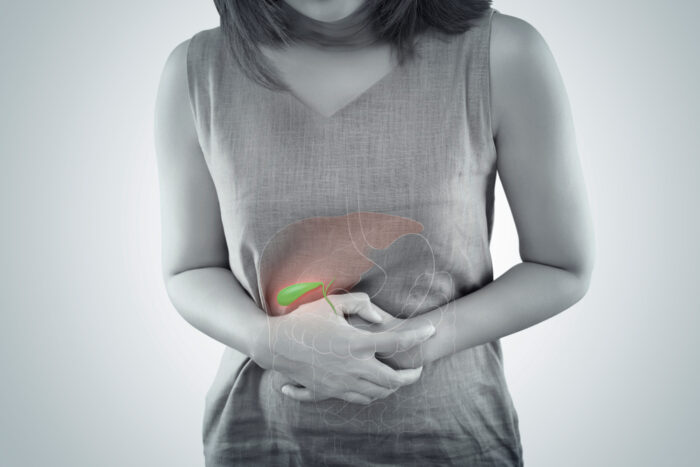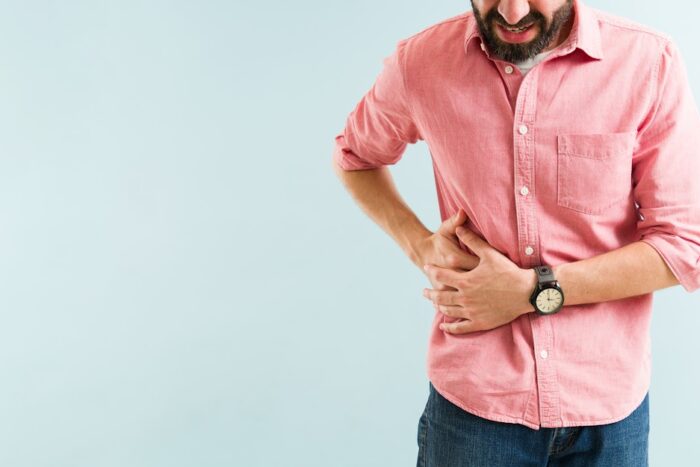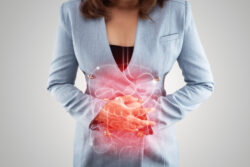Top Signs Your Gallbladder Needs to Go
Many people don’t think much about their gallbladder until it starts acting up. According to studies, up to 15 percent of the adult population deals with gallbladder problems, including gallstones. That being said, not everyone addresses this problem until they start clutching the right side of their abdomen after every meal.

Gallbladder problems can often be fixed with medicine. However, there are also situations when your issues are too bad for medication to fix them. In this case, your gallbladder will just need to go. In this blog, we will talk about how your gallbladder can cause you problems and when gallbladder surgery should be the answer.
What Causes Gallbladder Problems?
More often than not, gallbladder problems are associated with gallstones. Formed out of hard deposits, a gallstone can be as small as a grain of sand, or as big as a ping-pong ball. And once gallstones form, they can lead to an infection.
No one knows exactly why gallstones happen. Some link it to high amounts of cholesterol, whereas others may believe it is because the gallbladder does not empty correctly. A sedentary life with a poor diet may also lead to the formation of gallstones.
Sometimes, medical treatment may be enough to fix the problem. Other times, you might have to remove the gallbladder completely so that you may nurse yourself back to health.
Early Signs of a Gallbladder Problem
When you start forming gallstones, no matter how small they may be, you may notice the following signs:
- Sharp pain in your right upper abdomen area, especially after you eat
- Frequent nausea and bloating
- Low-grade fever
- Yellowing of the skin (this happens if the gallstones are in your common bile duct)
In the beginning, the symptoms may be mild enough to not be considered troublesome. That being said, this doesn’t mean the gallstones are not forming. Dr. Patrick Moore may recommend medical treatment depending on the size of the gallstones.

Signs of a Serious Gallbladder Problem
When gallstones start blocking the cystic duct or your gallbladder is becoming inflamed, this may signal some serious gallbladder problems. In that case, Dr. Moore may recommend you remove the gallbladder surgically. It is possible to live a normal life without a gallbladder, so it makes sense to remove it once it starts affecting your lifestyle.
Here are the signs that your gallbladder should be removed surgically:
- Persistent pain in the upper-right abdomen that radiates into other regions of your body, such as your chest or your back
- Constant digestive problems such as acid reflux and gas
- Nauseating sensation accompanied by vomiting, especially after a meal
- Chronic diarrhea that doesn’t go away, even after several weeks have passed
- Multiple bowel movements per day, over three months or more
- Dark urine and light-colored stools that can signify a common bile duct blockage
- Fever and persistent sweating, no matter if it is during the night or day
Gallbladder problems may not be so uncomfortable when they just start, and many people associate them with a “feeling blue” moment. However, the bigger the gallstones get, the more blockages and pain they may lead to.
If the pain is so great that you can’t sit still or be comfortable, then it might suggest a gallbladder emergency. The sensation may also be accompanied by high fever and jaundice. If you experience these symptoms, you should contact Dr. Moore immediately.
The Bottom Line
The more you ignore gallbladder problems, the higher your risk of developing gallbladder disease becomes. Call Dr. Moore’s office if you notice any of the common symptoms. He will determine whether your gallbladder should be removed or not.
For more information about gallbladder problems and when surgery should be the answer, you can contact Dr. Patrick Moore at 951-477-5700. He would be more than happy to answer all of your inquiries




